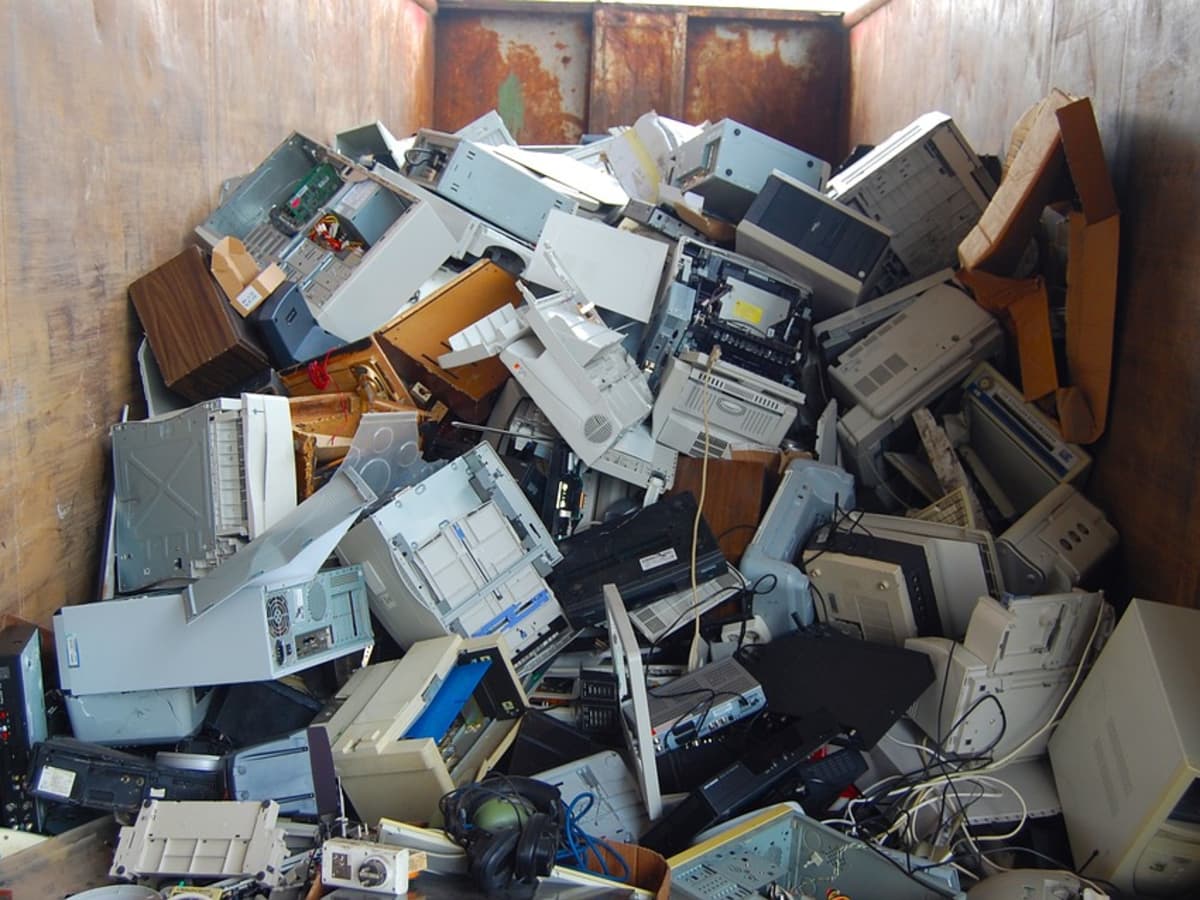Know the local regulations.
While it’s a good idea to know what you can and cannot recycle, there are many local regulations that may vary. In some municipalities, electronics recycling programs will accept old electronics for free or at a small fee. Check with your municipality to find out how to recycle electronics in your area.
Don’t throw away electronics in the trash.
It’s important to note that you should never throw electronics in the trash. This is because they contain valuable resources like gold and copper, which are often used by recycling facilities as a base material for new products. The most common way to recycle electronics is through donation programs at local charities or reuse centers; some even offer free drop-off locations! Make sure you find one near where you live before donating any old gadgets—and don’t forget about packing them up properly so they don’t break during transport!
Consider donating them to a charity.
Donating your old electronics to a charity can be a good way to get rid of them. Charities are often in need of items like these, and they’re happy to receive them. There are many ways you can donate old electronics, including:
- Nonprofit organizations such as Goodwill or Habitat for Humanity
- Schools and libraries (check with the school district)
- Other local organizations
Know where your electronics are going.
- Find out where your electronics are going.
- Find out if your local recycling center accepts electronics.
- Find out if the recycling center is environmentally friendly, and safe for the environment.
Check online for recycling options.
- Check online for recycling options near you.
- Call your local government office, electronics store or waste management company and ask if there is a local recycling center in the area.
Think about how you can recycle those old batteries and cables, too.
If you have old batteries, cables and other electronics you’re ready to toss out, think about how you can recycle those items instead of just tossing them in the trash. When it comes to recycling electronics, most municipalities will not accept them unless they are broken or damaged in some way. However, there are some places where all of your old computer parts can be disposed of properly—and even turned around into new products!
- Recycle Batteries at Retail Stores:
The first place many people look for recycling information is at retail stores. Many large electronics retailers like Best Buy and Target will take most types of consumer electronics (cellphones, laptops) as well as small appliances such as televisions and washing machines—just make sure it’s marked “recyclable.” Cables that connect electronic devices are also often recyclable; look for signs indicating this on your device packaging when purchasing something new online or in person so that once again gives us hope that someday soon we’ll see these items being reused rather than landfilled forevermore…
You don’t have to throw your old electronics in the trash if you want to get rid of them safely and responsibly!
You can’t just throw them in the trash. If you do, they’ll end up in a landfill or incinerator and could cause toxic fumes to leak into your home. That’s why we’ve put together this list of safe ways to dispose of old electronics:
- Don’t put them in a recycle bin—they’re not recyclable! They also contain harmful chemicals that can leach into water sources if they’re disposed improperly or landfills are too close to homes or businesses.
- Don’t recycle them yourself—it’s illegal for anyone other than licensed facilities (like those at Goodwill) to handle electronic devices like televisions, computers and cell phones because these devices contain hazardous materials such as lead paint chips from old TVs which could cause serious health problems over time if ingested by children who play with toys containing these paints while eating solids foods like fruits/vegetables etc…


